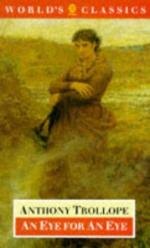Dearest Kate,
I will be with you on the 15th or on the 16th at latest. You should remember that a man has a good deal to do and think of when he gets pitchforked into such a new phase of life as mine. Do not, however, think that I quarrel with you, my darling. That I will never do. My love to your mother.
Ever your own,
Fred.
I hate signing the other name.
This letter was not only written but sent.
CHAPTER VII.
Sans reproche.
Three or four days after writing his letter to Kate O’Hara, the Earl told his aunt that he must return to Ireland, and he named the day on which he would leave Scroope. “I did not think that you would go back there,” she said. He could see by the look of her face and by the anxious glance of her eye that she had in her heart the fear of Kate O’Hara,—as he had also.
“I must return. I came away at a moment’s notice.”
“But you have written about leaving the regiment.”
“Yes;—I have done that. In the peculiar circumstances I don’t suppose they will want me to serve again. Indeed I’ve had a letter, just a private note, from one of the fellows at the Horse Guards explaining all that.”
“I don’t see why you should go at all;—indeed I do not.”
“What am I to do about my things? I owe some money. I’ve got three or four horses there. My very clothes are all about just as I left them when I came away.”
“Any body can manage all that. Give the horses away.”
“I had rather not give away my horses,” he said laughing. “The fact is I must go.” She could urge nothing more to him on that occasion. She did not then mention the existence of Kate O’Hara. But he knew well that she was thinking of the girl, and he knew also that the activity of Lady Mary Quin had not slackened. But his aunt, he thought, was more afraid of him now that he was the Earl than she had been when he was only the heir; and it might be that this feeling would save him from the mention of Kate O’Hara’s name.




